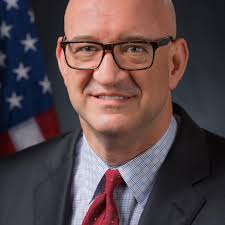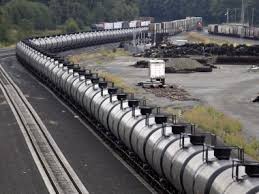
The way Oklahoma Energy Secretary Ken Wagner views the cancellation of the Keystone XL pipeline by President Biden on his first day in office is it is a move that could help Oklahoma. It is also a move that won’t do much toward reduction of greenhouse gas emissions and could mean increased use of railroad oil tankers and trucks.
But Wagner in a Wednesday interview with Ken Johnson on the Rusty Mic show on radio KTLR in Oklahoma City also pointed out, “the problem with that (cancellation) is demand won’t follow those same curves.

He called the decision a “political” one and indicated the cancellation of the pipeline won’t produce a lot of difference in the short term.
But it will likely benefit Oklahoma.
“Because we would see price increases that would benefit our tax base and production here in Oklahoma,” said Wagner as he considered the impact only a few hours after the President sat down and signed 17 executive orders.
While environmentalists and activists who fought the line are celebrating in Montana, South Dakota and Wyoming, Wagner made the prediction it will only send the oil to refineries via other methods.

“This same product will find other ways to market which include over-the-road trucking, rail and the use of other pipelines,” said Wagner. “From a climate change standpoint, even if you were to cut off all modes of transportation with our largest trade partner which is Canada, those hydrocarbons will find their way to developing countries and continue to create carbon dioxide.”
Wagner said the oil from Canada will continue to be moved into the U.S. by existing pipelines. He says the developer could also eventually make chemical and pump upgrades to move the Canadian oil more quickly through the lines.
He pointed out that there is already a movement upwards of the price of oil.
“So I’m not sure that everything is bad in the short term. But there is the effect on all those union jobs that were already committed to work on this pipeline—in the nature of 10,000,” Wager explained.
He also noted that in order to get the permit approved by the Trump administration, TC Energy also had to make accommodations to Indigenous communities in that north “that would receive billions of dollars in economic benefits from this pipeline.”
Now they won’t.






